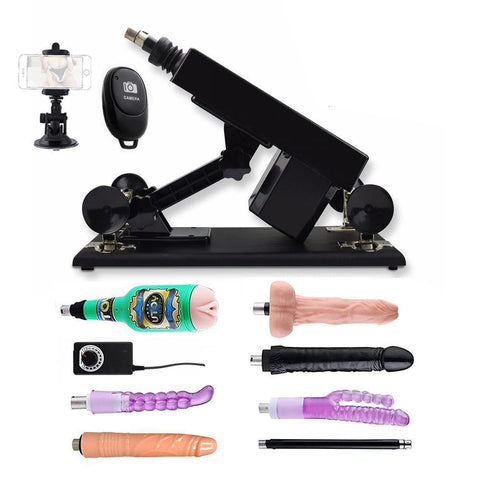best sex machine
A reader asked this question:
"I've heard the words' quirk 'and' fetish 'are used interchangeably most of the time. However, I think they are two different concepts. A search on the Internet revealed that fetishes are necessary to arouse sexual arousal, and kink is something that can enhance arousal, but not necessary. Can you explain the actual difference between these two widely used terms?"
Thank you for that great question! I also often hear the two words used interchangeably. While they certainly overlap to some extent, they are not exactly the same thing.
I attended Dr. Richard Sprott's 2019 conference talk, and I think he explained the difference very well. According to Dr. Sprout:
"Eccentric" is used to describe a variety of deep love interests, behavior, practice, relationship, identity of the general term.
In other words, kink is a very broad concept that encompasses almost any form of sexual expression outside the mainstream. These include the sexualization of strong emotions (mixing pleasure and pain, for example), playing with power differences, deriving pleasure from inanimate objects, role-playing, and so on.
So what is a fetish? This is a special cycle. A fetish, in Sprout's words, is:
A persistent fascination with specific sensory stimuli, including specific body parts or inanimate objects.
In other words, fetishes involve a high degree of attraction to certain objects (such as boots and shoes) and/or body parts other than genitalia (such as feet and armpits).
Fetishes are often described as "fixation" or "obsession". The idea is that fetishes are absolutely necessary for arousal and orgasm. However, this may not be a fair description of all fetishes, the study found.
In fact, most people with fetishes say they still enjoy non-fetishes. Thus, rather than seeing fetishes as necessary for sexual arousal, fetishes can be seen as (in Sprout's words) "fetishes" or preferences for a particular object -- thus enhancing arousal if an object is present, but not absolutely necessary for sexual expression and enjoyment.
In the case of very strong fetishes, sexual arousal is likely to depend on the presence of the object; But most fetishes don't seem to rise to that level.
To sum up, entanglement is a general term, and fetishes also fall into this category. So, all fetishes are eccentricities. However, not all eccentricities are fetishes. For example, masochism (awakening from giving and/or receiving pain) would be an example of a quirk that is not a fetish, as it does not involve an obsession with a particular object or body part. Sure, you could be both a sadist and a fetish, depending on your specific love interests, but that sounds like a story for another post.
Another thing I should mention is that having a quirk or fetish is not unhealthy or a sign of insanity. Most people with quirks and fetishes are psychologically well adjusted and do not encounter problems in life or relationships because of their sexual interests [2,3].
Weirdness and fetishism are only considered problematic if (1) a person satisfies their desires through involuntary behavior, (2) they pose an unacceptable risk or harm to themselves or others, and/or (3) they cause serious psychological distress or harm.
For more q&A on sex and psychology, click here. To send a question, click here.








